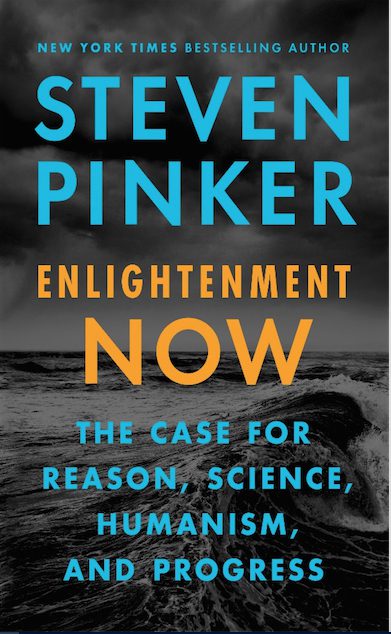 En•light•en•ment (ĕn-līt’n-mənt) n. A philosophical movement of the 1700s that emphasized the use of reason to scrutinize previously accepted doctrines and traditions and that brought about many humanitarian reforms. — The American Heritage Dictionary Civil unrest, war, terrorism, epidemics, inequality, environmental degradation, famine and poverty — when you read the news, it looks like the world is falling apart, and that nothing short of a radical course correction can stop the carnage and return us to a happier era.
En•light•en•ment (ĕn-līt’n-mənt) n. A philosophical movement of the 1700s that emphasized the use of reason to scrutinize previously accepted doctrines and traditions and that brought about many humanitarian reforms. — The American Heritage Dictionary Civil unrest, war, terrorism, epidemics, inequality, environmental degradation, famine and poverty — when you read the news, it looks like the world is falling apart, and that nothing short of a radical course correction can stop the carnage and return us to a happier era.
But is that truly the case? Harvard Psychology Professor and New York Times bestselling author Steven Pinker says, absolutely not.
Marrying hard data to a keen understanding of the human mind, Pinker notes that people are safer, freer, healthier, wealthier, and happier now than at any previous time in history, not just in the West, but worldwide. More importantly, he lays out the reasons for how this progress happened and how we should continue it.
ENLIGHTENMENT NOW: The Case for Reason, Science, Humanism, and Progress (Viking) is an elegant assessment of the human condition in the third millennium and a passionate defense of values that people take for granted. These are the values of the Enlightenment — reason, science, and humanism — and they underlie the conviction that we can use knowledge to enhance human flourishing.
ENLIGHTENMENT NOW takes on many of the perplexing questions of our day:
• Why do people feel that the world is getting worse while the facts show it is getting better?
• Is there a coherent alternative to religion, nationalism, and radical and reactionary politics that can energize the reasonable center?
• Are we seeing a U-turn in democracy? In equal rights for women, gay people, and racial minorities?
• Are all the so-called advances in wealth and technology just leaving people lonelier, unhappier, and more alienated than ever?
• Why do apparently sane people endorse patently irrational beliefs?
• Will it all come crashing down in an apocalypse of nuclear war, resource shortages, climate change, and runaway artificial intelligence?
With intellectual depth and literary flair, ENLIGHTENMENT NOW makes the case for reason, science, and humanism: the ideals we need to confront our problems and continue our progress.
Steven Pinker is an experimental cognitive scientist and one of the world’s foremost writers on language, mind, and human nature.
Currently Johnstone Family Professor of Psychology at Harvard University, Pinker also has taught at Stanford and MIT. His research on vision, language, and social relations has won prizes from the National Academy of Sciences, the Royal Institution of Great Britain, the Cognitive Neuroscience Society, and the Association for Psychological Science.
He also has received nine honorary doctorates, several teaching awards at MIT and Harvard, and numerous prizes for his books The Language Instinct, How the Mind Works, The Blank Slate, The Better Angels of Our Nature, and The Sense of Style.
He is chair of the Usage Panel of the American Heritage Dictionary, and often writes for The New York Times, Time, and other publications. He is an elected Member of the National Academy of Sciences, and has been named Humanist of the Year, Prospect magazine’s “The World’s Top 100 Public Intellectuals,” Foreign Policy’s “100 Global Thinkers,” and Time magazine’s “The 100 Most Influential People in the World Today.”
Pinker will be in Miami on Mar. 8, at 8 p.m., for an event at Coral Gables Congregational Church in conjunction with Books & Books.






